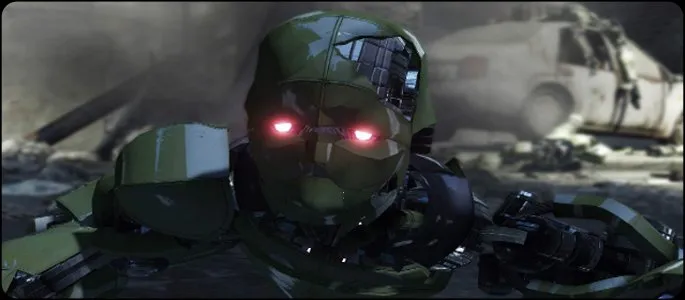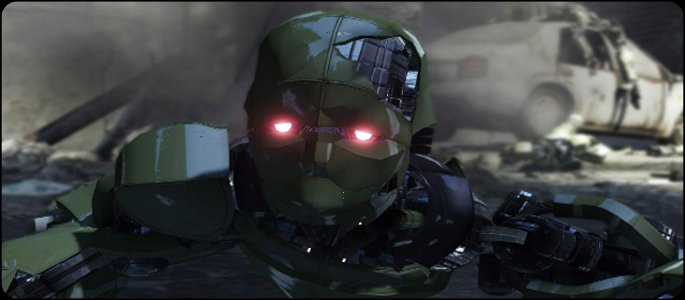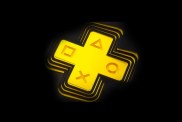
If someone had walked up to me and said that the creator of the Yakuza franchise, Toshihiro Nagoshi, had created a squad-based, sci-fi themed, third person shooter, I probably would have written it off as heavy handed and a slow burn based solely on the design of the Yakuza game series. So imagine my surprise when I popped in Binary Domain, the first game developed by Nagoshi’s newly formed Yakuza Studio and published by Sega. At the outset, Binary Domain appears to continue the now long lineage of games attempting to ape on the mechanics of Gears of War or Mass Effect, but there are some neat ideas that manage to set this title apart from its predecessors. It’s just a shame that some of the interesting ideas don’t work as well in practice as they do in concept.
In the year 2048, floods have ravaged much of the world’s surface and major rebuilding efforts are taking place globally. In order to pick up the slack, robots and AI have become standard, and have even lead to the creation and adoption of a new set of rules called the New Geneva Convention. Unfortunately, the relationship between men and machines becomes tenuous with the advent of Hollow Children, a group of robots with living tissue over a metal endoskeleton, and a direct violation of of the New Geneva Convention. These robots are indistinguishable from humans and, worse yet, they have been implanted with false memories much like the replicants within Blade Runner.
Enter Sargent Dan Marshall, an American ex-special forces soldier, who is part of a multinational task force called a Rust Crew. His team’s mission is to locate Yohji Amada, the head of the Amada Corporation, who is believed to be responsible for the Hollow Children and bring him in alive to stand trial. Of course, the mission while sanctioned by several nations, is strictly off the books, and what starts as a clandestine covert-op turns into an adrenaline filled bid for survival through the slums, sewers, and streets of future Tokyo. Throughout the 8-10 hour campaign, Dan is saddled with this well trained crew of multinational soldiers including his war buddy Roy ‘Big Bo’ Boateng. During the course of the game players have the choice as to which two members accompany Dan through given segments. Each has their own weapons and abilities, and can change the way that some engagements can unfold during the course of the adventure.
Based on that description, I wouldn’t fault anyone reading this for thinking that Binary Domain is attempting to playoff of existing stereotypes. However, this veneer belies a very well written narrative with some genuinely gripping moments interspersed throughout the experience. Moreover, there’s also some high concept science fiction ideas that are bandied about in the closing acts of the game. I shan’t spoil them in this review, but let’s just say that I’m a huge sucker for any game that gets me to think about the thin line between man and machine. Still, the narrative seems pretty box standard for a squad based shooter, but what sets apart Binary Domain is the trust system.
As the game progresses, Dan is asked questions by his teammates that allow players to choose responses or provide them via a mic, as the game does have voice recognition built-in. Responses dictate how much trust is gained with various characters. This has two very distinct effects on the gameplay. The first is that characters that have a high trust with Dan will be more likely to obey his commands in battle. Second, the trust system affects how bold that character will be in a firefight. As an example, Rachel, the strong and silent ex-MI6 agent, will often just utilize her shotgun in fights. However, if enough trust has been gained she will be more likely to bust out her RPG which can make dealing with heavily armored enemies much easier. Another interesting example is the teams robot companion Cain, who will use his shield system to draw enemy fire and shield him from damage. This is particularly useful in revealing enemy positions allowing the player to pick off enemy robots at their leisure.

Unfortunately, the trust system doesn’t always shine so brightly, and this is due largely to the oft annoying companion AI. While it’s true that the game’s characters will revive you when you’re down and out of medical kits and, for the most part, can take care of themselves, they also have a terrible tendency to wander into your field of fire. In fact, one of my chief complaints against the single player is that this phenomenon occurs with alarming regularity. Plus, there’s the added downside that shooting a teammate will cause their trust in you to decrease. As a result major gun battles require a much higher level of situational awareness than most squad based shooters, and it can be a big problem when you just want your squad to take cover so that you can line-up some clear shots.
Weapons can also be upgraded throughout the course of the game using credits earned from defeating enemies. Indeed, killing robots never gets tiresome in Binary Domain. Perhaps the reason I had so much fun with it was how much it reminded me of Dead Space, as individual limbs can be blown off enemies. In fact, some of my favorite animations within the game were when I would destroy the arm of a robot holding a gun. The robot would then walk over to its disembodied arm and pick its weapon back up with its other hand. Enemies will also belly crawl toward the player if their legs are severed which provides for some creepy moments when an enemy suddenly appears from around the corner of your cover. Headshots are also of tactical importance as severing an opponent’s head causes the robot to attack its own. Many are the times were decapitating the toughest enemy in a group would lead to the entire group getting mowed down in a spray of heavy weapons fire. The robots also explode and break apart in convincing ways and the weapons within the game have a satisfying heft and feel to them.
However, a major pet peeve that I had with respect to the weapons was the lack of a quick fire or quick throw grenade. Grenades have to be selected first by pressing down on the D-pad and then thrown using an arc aiming system. Subsequently, grenades have a limited application during some of the more intense gunfights since they require too much preparation and timing to be of use. It’s a pity too, considering the variety of different grenade types that are available in the campaign. Another issue I have is with respect to the shooting, as there is no way to switch shoulders while aiming. As a result of this problem, there are a few occasions where Dan will clearly be leaning out from behind cover to shoot, but the barrel of the gun is still pointed at a wall. This makes for a lot of wasted ammo and some frustration while trying to engage enemies from cover.
Looking at the multiplayer, it contains the usual assortment of competitive modes alongside a wave-based survival mode called Invasion. But it’s very by the numbers and does nothing to innovate the usual vanilla multiplayer suite that accompanies games of this ilk. On a personal note, the multiplayer experience in Binary Domain reminds me of the now departed Metal Gear Online. I can’t pinpoint exactly why this is, but the way characters move coupled to the overall look and feel are very evocative of Kojima’s defunct multiplayer suite from Metal Gear Solid 4: Guns of the Patriots. So for those of you out there mourning the loss of MGO, you may be able to reclaim some of that former glory here.
Oftentimes western influenced Japanese games suffer an identity crisis as they try to reconcile western sensibilities with Japanese game design. While there are some of those awkward eccentricities here, they aren’t enough to derail the enjoyment of playing Binary Domain. From start to finish the single player campaign is a lot of fun, and does also hold some replay value for people itching for greater challenges on higher difficulties. The characters feel distinct and real, and the trust system adds an element of depth not usually found in games like this. My only hope is that Binary Domain sells enough copies to justify the release of a second title as I would be curious to see where they take the characters and stories next. With some further streamlining, refinement, and innovation, with particular attention paid to the multiplayer, the next installment could be amazing. In the meantime, I would recommend players give Binary Domain a look.
PlayStation LifeStyle’s Final Score
+ Engaging single player campaign that features some gripping moments and some high concept science fiction. – Oftentimes you’ll find your squad mates standing and lingering in your line of fire. +/- Multiplayer suite is complete, but lacks any kind of innovation to distinguish itself from other games within the genre. |
 |
–
+ Engaging single player campaign that features some gripping moments and some high concept science fiction.
– Oftentimes you’ll find your squad mates standing and lingering in your line of fire.
+/- Multiplayer suite is complete, but lacks any kind of innovation to distinguish itself from other games within the genre.








